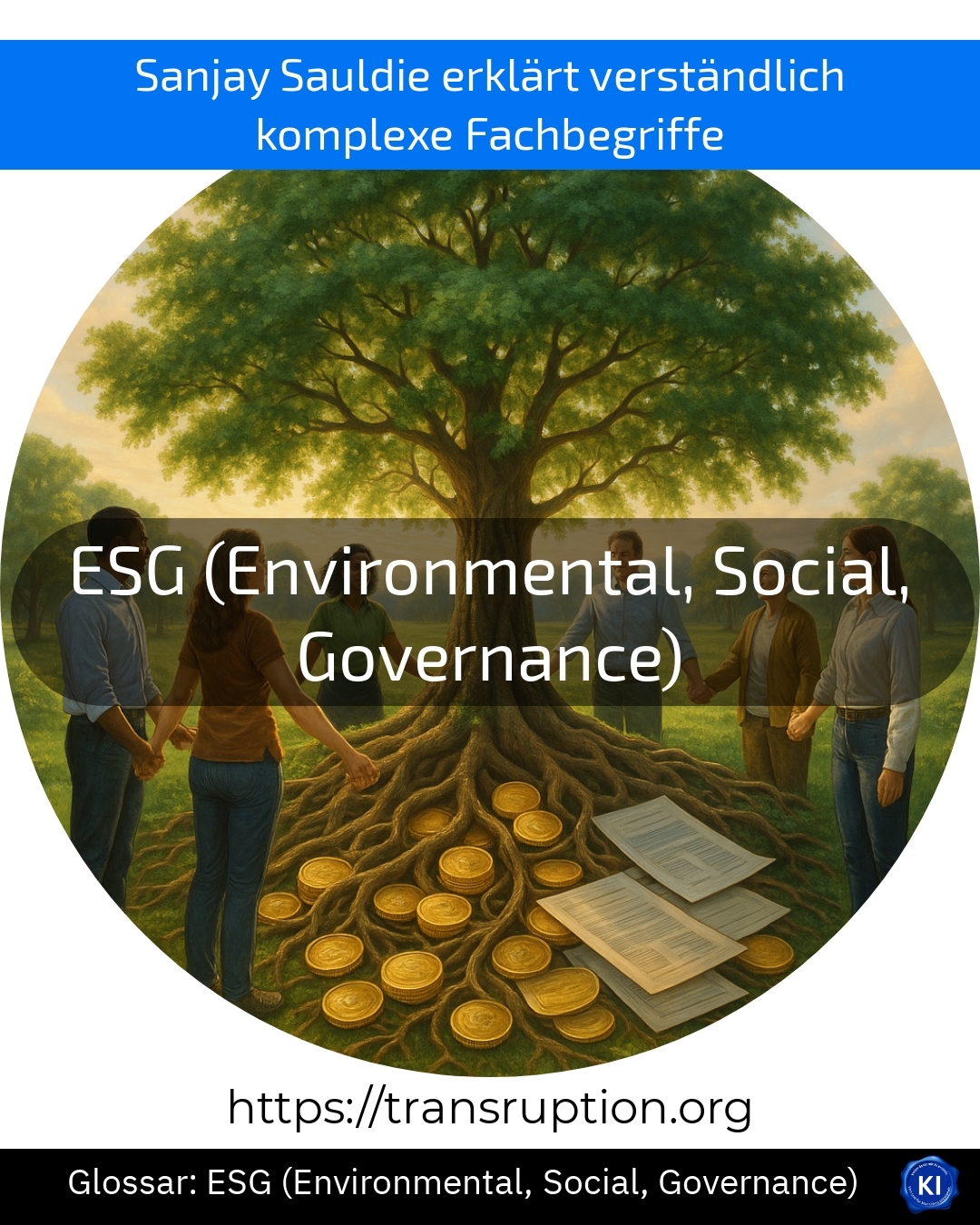The term ESG (Environmental, Social, Governance) originates from the areas of sustainability and environment 4.0, digital transformation and crowdfunding and finance. ESG describes how companies take responsibility for the environment, society and good corporate governance.
Environmental refers to how companies conserve resources, reduce emissions or use renewable energies. Social refers to how companies deal with employees, suppliers and society - for example through fair working conditions or social projects. Governance describes transparent and ethical guidelines within the company, for example in the selection of management or anti-corruption measures.
ESG is becoming increasingly important in the digital economy: investors are paying more and more attention to whether companies act sustainably and responsibly. One example: an online retailer only uses environmentally friendly packaging for shipping, promotes diversity in its team and regularly publishes reports on its own corporate governance. This is a classic ESG approach.
Companies that orientate themselves towards ESG criteria not only increase their credibility, but often also reduce risks and improve their future prospects.















